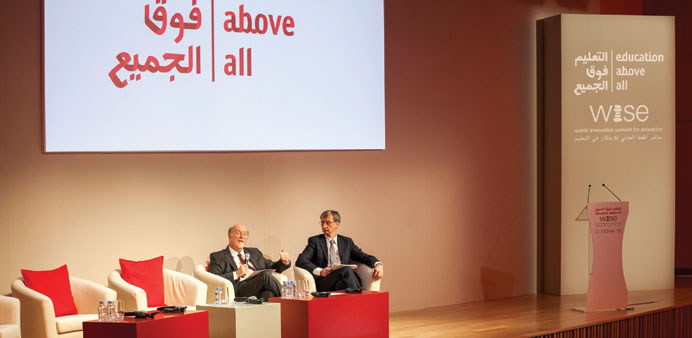The Education Above All Foundation (EAA)’s Protect Education in Insecurity and Conflict (PEIC) programme, as part of the recently held World Innovation Summit for Education 2015, convened a session to discuss the vital role that reliable data plays in monitoring and responding to attacks on education across the globe.
The session featured an explanation of PEIC’s global data service on attacks on education, which will be a hub for the collection, analysis, storage and distribution of information about attacks on education for policymakers, NGOs and other stakeholders.
The session was moderated by Dr Kevin Watkins, executive director of the Overseas Development Institute, and featured a panel of experts, including Dr Anna Alvazzi del Frate, research director for the Small Arms Survey; Dr Maryam Qasim, former human development and public services minister for Somalia; Mark Richmond, director of PEIC; and Dr Laurent Dutordoir, child protection officer for the UN Department of Peacekeeping Operations.
Panellists shared their perspectives and experiences concerning how data can be used to strengthen policy development, programme design and operational practice related to attacks on education.
Commenting on the introduction of the global data service, Richmond said: “Setting up and operating the hub is an exciting prospect but it will be a complex and demanding task. To be credible and trustworthy, it will need to be independent, rigorous, transparent and professional. Those supplying data to it and those using its outputs will expect nothing less.”
PEIC’s global data service will draw information from multiple sources, including UN agencies, NGOs and on-the-ground reporting from members of the community in order to paint a clear and verifiable picture of the extent of attacks on education.
Starting with five countries – Afghanistan, Colombia, Iraq, Nigeria and South Sudan – the global data service will gradually add data over the coming months. Cross-referenced for accuracy, the data are likely to become a key resource to those looking to identify attacks on education as they are happening and determine which responses are working.
“The loss of institutions during times of conflict goes hand in hand with the loss of data,” said Dr Qasim, explaining that these gaps make it difficult to develop policies needed to restore normalcy and ensure sustainable development post-conflict.
The reports and profiles offered through the hub can aid national governments and intergovernmental bodies in their efforts to react to existing crises and hopefully identify trends that could be used to prevent future incidents.

The session in progress.
